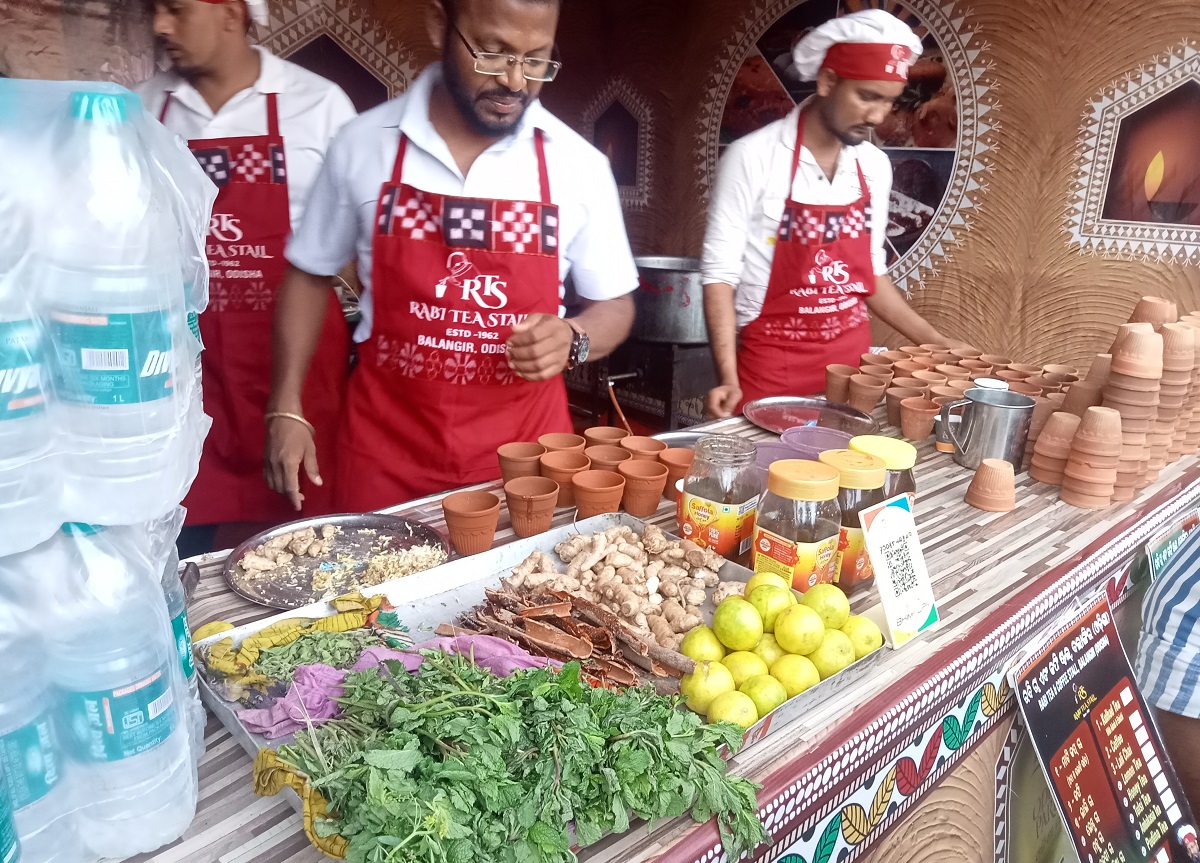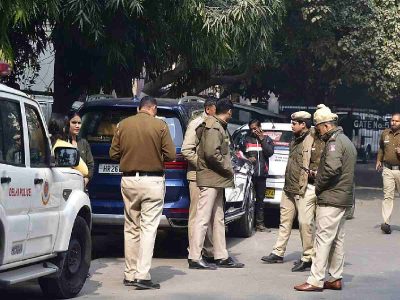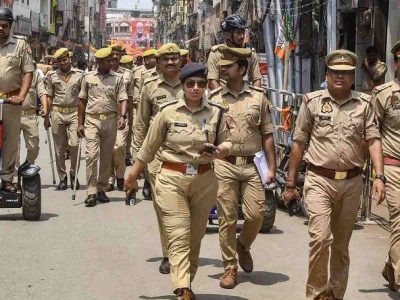At first glance, Odisha Parba in Jawaharlal Nehru Stadium looked like a seasonal festival for Odia people in Delhi. There were all sorts of visitors: young boys and girls, professionals, working class people, and families. There were smiles on everyone’s faces, and it looked as though visitors had been waiting for it for years.
The assumption may be correct as the festival returned after a three-year hiatus. The visitors, too, informed that they had waited all this while to taste the flavours of Odisha in the festival. The food area, which consisted of many stalls for main course, snacks, and sweets, looked like a scene from a wedding. People ate food standing by the table, on the floor, on chairs, and near the stalls. There was a huge crowd on almost all the stalls – with traditional sweets and non-vegetarian dishes winning the game.
The food was cheap and tasty, and perhaps no dish went as far as Rs 400. This was one of the reasons for the popularity of the food.
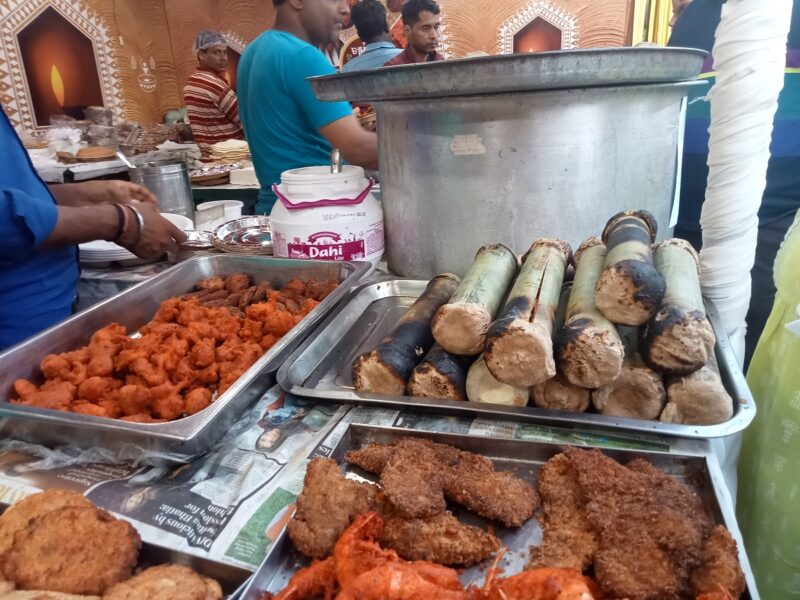
“This is for Rs 200. You enjoy it as we are enjoying it. In Odisha, we eat it regularly,” said a visitor as he munched on mudi mansa (puffed rice with chicken or mutton gravy, often complimented by onion, green chilli, and coriander).
Just beside the stall of mudi mansa, mudi ghanta (an Odia dish with lentil and fish head being the main ingredients) was sold like hot cakes. The seafood dishes were a standout, with a range of delicacies featuring prawns, fishes, and crabs. Fish was the highlight, and visitors tried it cooked in a variety of ways.
A fish thaali with rice cost as less as Rs 100 and was priced as the same amount as vegetarian thali. At Aam Odisha, a food stall crowded by Delhiites and Odia people alike, the special meal at Rs 400 contained prawn curry, fish curry, chicken curry, dalma (lentils cooked with vegetables and papaya), chips, and salad.
“It is wonderful to be here. This is one of those times when I can enjoy the food that I have grown up eating. And because it is prepared by Odia people, the taste is authentic and I love to be here,” said Manoj Sah, a visitor at the event.
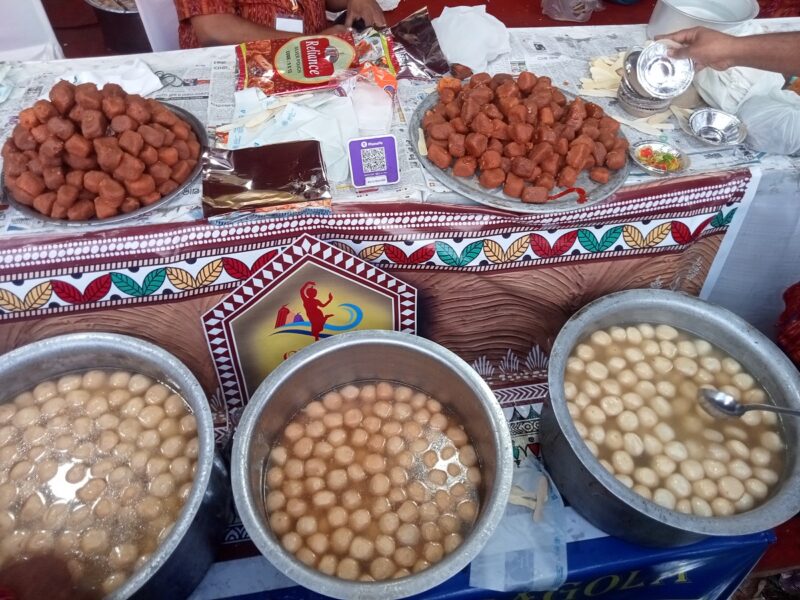
As the coastal state of Odisha consumes a variety of seafood, the emphasis was given not only to the type of dishes, but also the type of fishes that were served. There was pomfret fry, pohala macha (a type of small fish) fry, mahurali macha (Indian anchovy) fry, pabata macha (butter fish) bhaja (curry), and jalha macha (a type of fish) fry.
The traditional method of cooking in bamboo, called Banspoda, had all the non-veg dishes: mutton, chicken, prawn, and fish. Moreover, chakuli (a rice-based bread much like south Indian dosa), was to be had with mutton, chicken, fish, and lentils.
In snacks, there was local Aloo Chop, Bara (vada), piyazi, bhanda chop, and baigani, often served with ghugni (a curry made of peas and chickpeas).
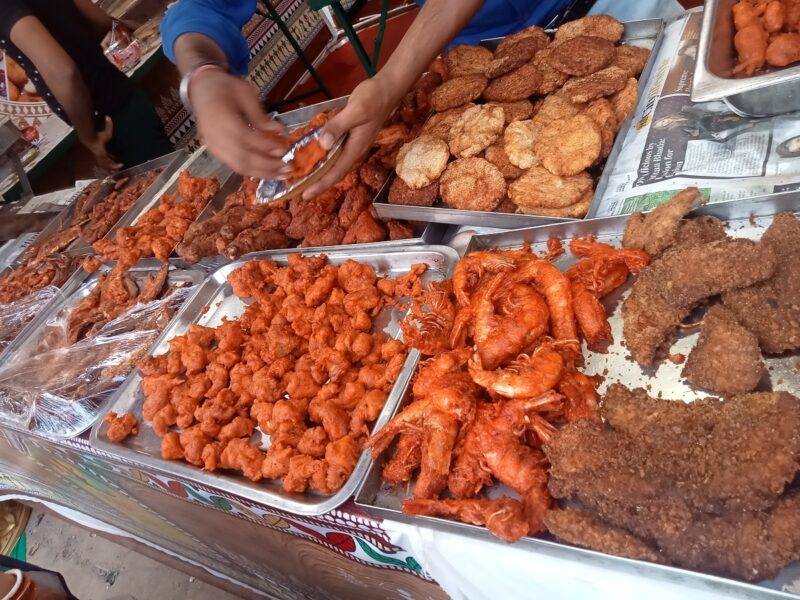
“I do not know much about Odia food and I have come here only to try it. I was tempted by the photographs on social media, especially the seafood and sweets. When I came here, I was not expecting it to be so good. Not just food, but the overall atmosphere is so new to me. I love the traditional performances and I love the music, although I don’t understand the lyrics,” laughed Oves, a native of Uttar Pradesh who is living in New Delhi.
The stalls of the sweets, apart from general queries about the prices, were buzzing with one more sound: the announcement on the PayTM box almost every second someone paid, reflecting on how the sweets were sold.
There was poda pitha (cake made from fermented rice, black gram, grated coconut and jaggery), kakara pitha (a sweet deep-fried cake made from wheat flour and coconut), arisa pitha (a crispy pancake made from rice flour and jaggery), chhena poda (a famous cheese dessert), and the most popular, Pahala rasagola (a type of rasgulla named after the place it was originated from).
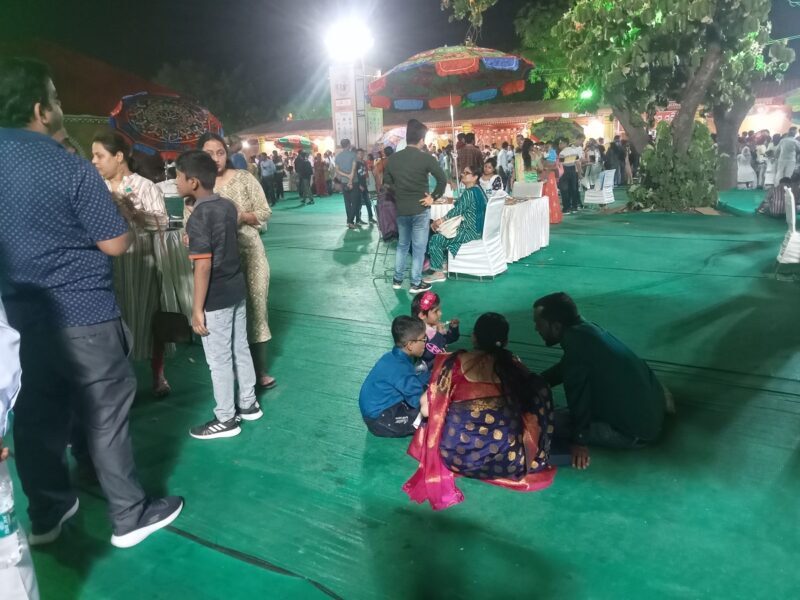
In drinks, there was traditional tea, coffee, and soft drinks.
The main entrance of Odisha Parba was constantly abuzz with people entering the place and leaving it. Visitors came as late as 8 pm on March 26, two hours before the festival was to be concluded. “We have just arrived here and came in urgency since we heard about it so much,” says a visitor in his early 20s, who accompanied a number of friends.

